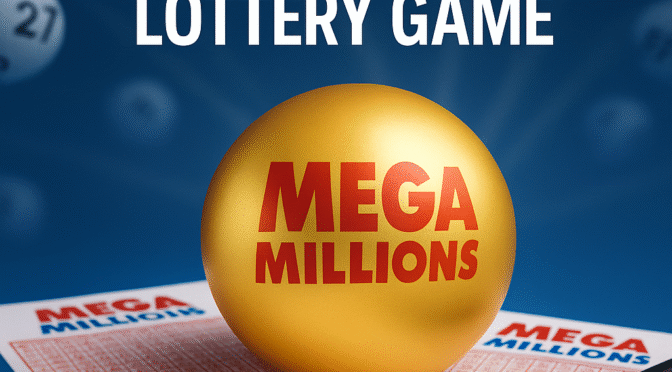The Powerball online lottery game is one of the most famous jackpot games in the world. Known for its massive top prizes and headline-making winners, Powerball attracts millions of players from eligible regions. Today, you no longer need to visit a physical retailer to participate. In many places, you can buy tickets, pick numbers, and check results directly from your computer or phone.
This guide explains exactly how the Powerball online lottery game works, including rules, odds, prize tiers, and how to play safely in 2025. You will also see practical tips to manage your budget and use options like syndicates more effectively.
What Is the Powerball Online Lottery Game?
Powerball is a multi-state lottery game (and, through some services, available internationally) where players try to match five main numbers and one special “Powerball” number. The game is popular because:
-
Jackpots can grow extremely large through rollovers
-
There are multiple secondary prize tiers
-
Tickets are relatively inexpensive, making the game accessible
When you play Powerball online, you are either:
-
Buying official tickets directly from an authorized state or national lottery website, or
-
Using a licensed online lottery service or courier that purchases a ticket on your behalf
In all cases, it’s critical to make sure the service you use is properly licensed and legal in your jurisdiction.
Powerball Number Format and Draws
Understanding the number structure of the Powerball online lottery game is crucial before you start.
Number Selection
Traditional Powerball uses a two-drum system:
The exact ranges can change over time, but the principle stays the same: five main numbers plus one Powerball.
Draw Schedule
Powerball draws take place on specific days each week (often three times per week). During each draw:
-
Five main numbers are drawn from the first drum.
-
One Powerball number is drawn from the second drum.
-
A separate draw can determine a Power Play multiplier if you purchased that option (available in many regions).
Match the right combination of numbers and you win a prize according to the game’s official prize table.
Powerball Prize Tiers and Payouts
The Powerball online lottery game offers multiple ways to win, not just the jackpot.
While exact prize amounts may vary by jurisdiction and jackpot size, typical prize tiers include:
-
Jackpot (5 + Powerball): Match all five main numbers plus the Powerball.
-
Second prize (5 + 0): Match all five main numbers but not the Powerball.
-
Third prize (4 + Powerball): Four main numbers plus the Powerball.
-
Lower tiers: Combinations like 4 + 0, 3 + Powerball, 3 + 0, 2 + Powerball, 1 + Powerball, or even just the Powerball alone may award smaller prizes.
The jackpot often starts at a high guaranteed minimum and rolls over when nobody wins, allowing it to grow until at least one ticket matches all six numbers.
Power Play Option
Many Powerball tickets offer a paid add-on called Power Play:
-
For an extra fee, non-jackpot prizes can be multiplied by 2x, 3x, 4x, 5x, or sometimes 10x, depending on the draw.
-
The multiplier is determined randomly before each draw.
-
The second prize (5 + 0) may be capped at a fixed higher amount when Power Play is active.
Power Play doesn’t affect the jackpot amount; it only boosts lower-tier prizes.
Odds of Winning the Powerball Online Lottery Game
Powerball is designed as a long-odds game with huge potential payouts. The odds of winning the jackpot are extremely low (in the tens or hundreds of millions to one, depending on the exact matrix configuration).
However, the odds of winning any prize are much better, because the lower tiers require fewer matching numbers. Typically:
-
Jackpot: Very low odds
-
Second and third prizes: Still rare, but more achievable
-
Lower tiers: Significantly higher odds, but smaller payouts
Understanding these odds is important because it reminds you that Powerball should be treated as entertainment, not a financial strategy.
How to Play Powerball Online Step by Step
Playing the Powerball online lottery game is straightforward. The key is ensuring you use a legitimate platform.
Step 1: Choose a Licensed Platform
Depending on your location, you may have access to:
-
Official state or national lottery websites
-
Authorized lottery courier services
-
Licensed international lottery agencies
Make sure the platform:
-
Is clearly licensed and regulated
-
Uses secure payment methods (card, bank, e-wallet)
-
Provides transparent information on how tickets are purchased and stored
-
Shows clear contact and support details
Step 2: Create and Verify Your Account
You will usually need to:
-
Register with your name, email, and other basic information.
-
Verify your email or phone number.
-
Provide age or ID verification if required by law.
Verification ensures prizes can be correctly paid to the right person.
Step 3: Select Your Powerball Numbers
You typically have two options:
There is no mathematical advantage in choosing numbers manually versus Quick Pick; both methods are random.
Step 4: Decide on Extras
Depending on the jurisdiction, you might be able to:
-
Add Power Play for a small extra cost
-
Join a syndicate or group play (more on this below)
-
Purchase multiple draws in advance
Pick the combination that best fits your budget and goals.
Step 5: Confirm Purchase and Keep Your Ticket Record
Before finalizing:
-
Double-check your numbers and draw dates
-
Confirm the total cost (including Power Play or multiple draws)
-
Save or screenshot your digital ticket or confirmation email
If you win, this record is your proof of entry.
Playing Powerball in Syndicates (Group Play)
A lottery syndicate is a group of players who pool their money to buy a larger number of tickets.
Advantages:
Trade-offs:
-
Any prize is shared among all participants
-
You need clear, written agreement or a trusted online syndicate manager
Many online lottery platforms offer built-in syndicate or group play options, managing shares and payouts automatically. This is a practical way to improve your chances of winning something without overspending on individual tickets.
Smart Strategies for the Powerball Online Lottery Game
You cannot control the draw, but you can control how you play.
1. Set a Firm Budget
Decide how much money you can comfortably spend on Powerball each week or month—and stick to it. Treat tickets like any other entertainment cost.
2. Avoid Number-Selection Myths
Common myths include:
-
Choosing “lucky” numbers like birthdays
-
Avoiding numbers that won recently because they are “cold”
-
Filling the ticket in patterns or shapes
In reality, each draw is independent. All combinations with the correct format have the same mathematical chance of being drawn.
3. Use Syndicates Responsibly
Syndicates can be fun and increase coverage, but:
-
Only join trusted groups or official online syndicates
-
Understand how shares and payouts are calculated
-
Avoid overspending simply because you are playing as a group
4. Don’t Chase Jackpots or Losses
When jackpots grow extremely large, media coverage can tempt you to buy far more tickets than usual. Avoid this trap. Stick to your budget regardless of jackpot size.
Safety, Legality, and Claiming Prizes
Because you’re dealing with real money and potentially large awards, safety is crucial.
Check Legal Eligibility
Playing through unlicensed or offshore sites can make it difficult—or impossible—to claim large prizes.
Claiming Smaller Prizes
On reputable platforms:
For larger prizes:
-
Additional identity verification and paperwork may be required.
-
In some regions, you might need to appear in person or follow special claim procedures.
Always read the site’s payout and identification policies before you play.
Playing Powerball Online on Mobile in 2025
Most major lottery platforms now provide mobile-optimized sites or apps.
Benefits:
-
Buy tickets and check results from anywhere
-
Receive notifications about upcoming draws and wins
-
Manage syndicates and subscriptions easily
Tips:
-
Use secure Wi-Fi or trusted mobile data networks
-
Enable app security (PIN, fingerprint, or face unlock)
-
Log out after playing on shared devices
Responsible Gambling: Keeping Powerball Fun
The Powerball online lottery game can be exciting, but it’s essential to remember:
-
The odds of winning the jackpot are very low.
-
Lottery tickets should never replace savings, investments, or essential expenses.
-
If you feel pressured to spend more than you planned, it’s time to step back.
Use responsible gambling tools where available, such as deposit limits, spending reports, or self-exclusion options. If gambling starts to affect your life negatively, consider seeking support from professional help services in your region.
Conclusion: Is the Powerball Online Lottery Game Worth Playing?
The Powerball online lottery game delivers huge jackpots, multiple prize tiers, and the convenience of playing from home or on mobile. For many players, the thrill lies in imagining “what if” every time they see the numbers drawn.
If you:
-
Use licensed, secure platforms
-
Set a strict budget and respect it
-
Consider syndicates without overspending
-
Accept that tickets are entertainment, not financial plans
then Powerball can be an exciting—and responsible—part of your online lottery experience in 2025, win or lose.









